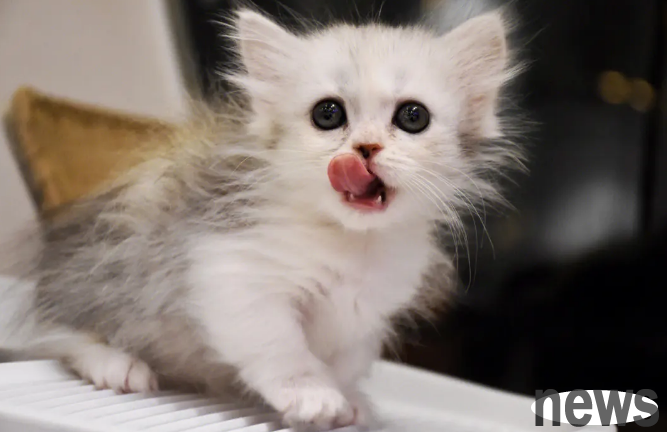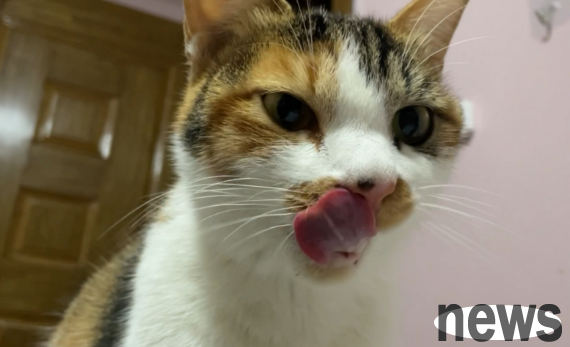There is an action that the shovelers here do every day!
That is - licking your mouth.
After eating, we will lick our mouths:
When we are nervous, we will lick our mouths:
When we are funny, we will lick our mouths:
Not just us, but cats will lick our mouths every day:
What does it mean?
Normal behavioral habits
Cats will make mouth-licking actions in daily life. For example:
When waiting for the meal,
When waiting for the can to open, many cats will not help licking their mouths...
This is due to the stimulation of the food smell, and seeing food reminds of eating, the salivary glands naturally secrete saliva.
On the other hand, it may be to say "I want to eat" to the shoveler.

According to Miklósi and other research on dogs, when dogs see something delicious, they may subconsciously lick their mouths. After parents notice this dog's action, they may give food to him.
This unconsciously "reward" the dog's mouth-licking behavior, so the dog learned to remind the owner of the poop to eat by licking his mouth...
When he just finished eating, the poop owner will find that the cat will lick his mouth after he just finished eating or drinking water.
This is to clean up food residues and small water droplets on the lips and mouth.
When dreaming, some cats will also smash their mouths when they are sleeping. Why is this?
According to research, cats also dream when they fall asleep, and usually dream about scenes they have experienced when they are awake, such as hunting and fighting.
When a cat is sleeping, sticking out his tongue, muttering to himself, stepping on milk, etc., it may be a dream of something delicious or a shoveler...
It may be a sign of nervousness
Sometimes, the cat's mouth licking may be related to emotional tension, which parents need to pay special attention to!

Relieve tension
For example, when taking the cat out/to the hospital/new cat enters the house, the cat feels fear and pressure and will comfort itself by licking its mouth.
is just like some people who want to bite their nails when they are nervous. This is a common "transfer behavior" when facing negative stimuli, in order to divert one's anxiety, tension, fear, etc.
Studies have found that dogs licking their mouths is a response signal during acute stress (Beerda et al 1997). When conducting a stimulus experiment on dogs, it was found that dogs would use mouth licking to relieve stress.
Therefore, whether a dog has a "mouth licking" manifestation has been used as a manifestation of assessing the dog's stress and ensuring its living welfare.
Although there has not been any relevant research on cats, in actual observation, it was found that cats actually have such behaviors.
Other cats with suspected hypersensitivity syndrome, as well as some cats with obsessive-compulsive disorder, may also experience excessive lips licking.
Some speculate that this may be related to epilepsy, while others speculate that this is related to stress and anxiety.
Health problems
When a cat is unwell, it may also show signs of licking his mouth. The most common ones are related to feeling nausea and oral problems.
When a cat feels nauseous, in addition to excessive licking of its mouth, common symptoms include: loss of appetite, constant chewing, drooling and vomiting.
